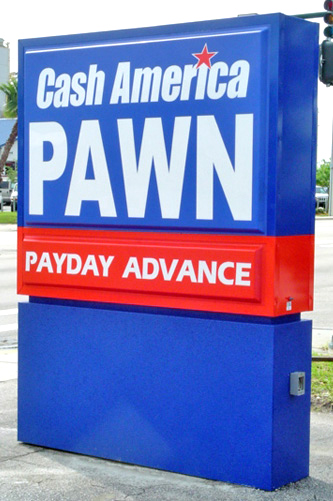Two weeks ago, BU Law hosted a financial planning workshop with a personal finance professional that has been advising clients for 30 years regarding how to build wealth. We learned the Rule of 72. Divide the number 72 by the interest rate that your money is getting and you’ll know how long it will take for your money to double. Put your money in a bank at 2% and it will be twice as much in 72/2 = 36 years. Put your money in an index fund or a mutual fund at 8% and it will be twice as much in 72/8 = 9 years. Or not, if the actual return turns out to be less than the best-case-scenario return, which does happen—we learned in Corporate Finance with Professor Nowill that a higher rate generally indicates a higher risk of the investment not returning as much money as you hoped it would. But if you get 5% instead of 8%, you can still make sense of the presenter’s take home lesson that “an investor’s best friend is time.”
 The presenter’s recommended application of that lesson was to set aside money starting yesterday. If it can be set aside before tax, matched by an employer, in an account that increases without paying tax as it increases, then you’re cooking with gas. That’s the magic of retirement plans. Another recommended application of this lesson was to “marry well”—which was “a joke, sort of.” The highest net wealth clients that the presenter advised over his 30 years were working with money that had built up before they were born. The second tranche of rich clients married someone like that. Then there were all the earnest souls trying to get financial footing in this lifetime. In other words, an investor actually has two best friends—time and money to get started. If you have $1 or $1M and you invest at 8%, both sums will double after 9 years, and double again in the next 9 years. But $4 isn’t the same as $4M.
The presenter’s recommended application of that lesson was to set aside money starting yesterday. If it can be set aside before tax, matched by an employer, in an account that increases without paying tax as it increases, then you’re cooking with gas. That’s the magic of retirement plans. Another recommended application of this lesson was to “marry well”—which was “a joke, sort of.” The highest net wealth clients that the presenter advised over his 30 years were working with money that had built up before they were born. The second tranche of rich clients married someone like that. Then there were all the earnest souls trying to get financial footing in this lifetime. In other words, an investor actually has two best friends—time and money to get started. If you have $1 or $1M and you invest at 8%, both sums will double after 9 years, and double again in the next 9 years. But $4 isn’t the same as $4M.
Given that interest allows money build over time, I can see the argument for creating more wealth to allow more households to build their cache—for example, letting businesses retain more profit with tax breaks to expand operations, to hire more employees, to provide benefits like matched retirement plans, all that trickle down stuff. (It’s hard for anything to trickle down after bonuses to senior management to motivate their performance in expanding the business, but still, I get the idea.) At the same time, given that a small cache of money will never catch up to a large cache of money, I also can see the argument for redistribution of wealth, for example, through tax transfers like the Earned Income Tax Credit for low-income households. (It’s hard for low-income households to build that tax transfer into wealth, though, when investing is less of a pressing issue than keeping lights and heat on, and when part-time or low-skill jobs don’t offer benefits like matched retirement plans.)
Maybe the real issue is not how wealth is distributed but rather how the increase of wealth is distributed. People who really have large caches pool their money into an even bigger cache and get professional management to guide that pool through higher risk and higher returns. For example, Bono’s investment firm is set to make more when Facebook goes public in May 2012 than he has made in his entire career with U2. In Starting New Ventures with Professor Nijhawan in the BU Graduate School of Management, we learned that venture capitalists put pooled money into new businesses with the expectation of 30-40% returns. 72/36 means doubling your (lots of) money in two years. Now that’s money on money. It doesn’t always work, but presumably they have lights and heat taken care of either way. Big paydays like a Facebook IPO are just bonus.
But we like Facebook. (It makes us market study subjects so businesses can study our preferences, but hey, then we get cool products to consume, right? Oh yeah, it also gives us an outlet to share ourselves with each other.) We also like Apple and Google and other wealth engines that make traditional financial planning work by creating a growth-oriented market in which to invest.
 It’s not always clear that return on investment is totally “clean” money. Apple is sorting out worker exploitation in China. Then there are gems like the pawnshop and payday lender Cash America, which recently changed its trading symbol from NYSE: PWN for pawn to NYSE: CSH for cash. Ever heard of lending money at 533.42% APR? You can’t make this stuff up. Investors are currently providing Cash America with $1.31B as shareholders. (Regarding the status of predatory lending, we learned about Obama’s recess appointment of the director of the new Consumer Financial Protection Bureau in Administrative Law with Professor Wexler, who has made this area of law way more appealing by asking us to think about what “fairness” means more than once in class.)
It’s not always clear that return on investment is totally “clean” money. Apple is sorting out worker exploitation in China. Then there are gems like the pawnshop and payday lender Cash America, which recently changed its trading symbol from NYSE: PWN for pawn to NYSE: CSH for cash. Ever heard of lending money at 533.42% APR? You can’t make this stuff up. Investors are currently providing Cash America with $1.31B as shareholders. (Regarding the status of predatory lending, we learned about Obama’s recess appointment of the director of the new Consumer Financial Protection Bureau in Administrative Law with Professor Wexler, who has made this area of law way more appealing by asking us to think about what “fairness” means more than once in class.)
The point is that traditional financial planning puts us in a position of investing in the market at large, which trickles up capital to the businesses that drive economic growth in a much more profound way than just buying their products and services. I’m glad to get an introductory grasp of how investment works, because I’m convinced it can be scaled down to drive local economies and jump start capital-starved neighborhoods. In fact, if rich people pool their money to make more money, then self-sufficiency is actually a myth that misinforms poor people. “Save your money” starts to sound like “save yourself” which is just not how getting established works as I’ve come to understand it. BU Law is not helping me to be self-sufficient as much as it is helping me to be connected to other professionals. Networking and teamwork are everything when it comes to building a career. Why would it be different for building wealth?
And the most important thing to keep track of is what wealth is good for at the end of the day. Wealth buys an education, a secure place to live, a certain quality of life and an ability to make choices with financial constraints as one factor, not the only factor. Wealth is not about buying a dream home as much as it is about coming together with others to buy a dream neighborhood. The purchase might be direct or indirect—for example, tuition at an independent school for kids or moving to a wealthy suburb where property taxes support a solid public school system. All of this is to say that I’m on the task of equitable wealth building for neighborhood stability and economic self-determination. Geoffrey Canada and Corey Booker get it. The Community Builders and The Midas Collaborative are on that tip. I want in.

One Comment
Vinit Nijhawan posted on April 21, 2012 at 11:32 am
Nice blog David. Most people have their main financial asset locked up in the value of their house. On average house prices increase at 6.26% in the US and people leverage that asset with mortgages say 5:1 (ie 20% down payment). With mortgage rate at say 4% that means your 20% downpayment will provide a 3.1% return so the rule of 72 suggests that your house asset will double in 24 years or so. Most people purchase their first house in their late 20s when they have their first children so your house asset becomes valuable to finance children’s college.